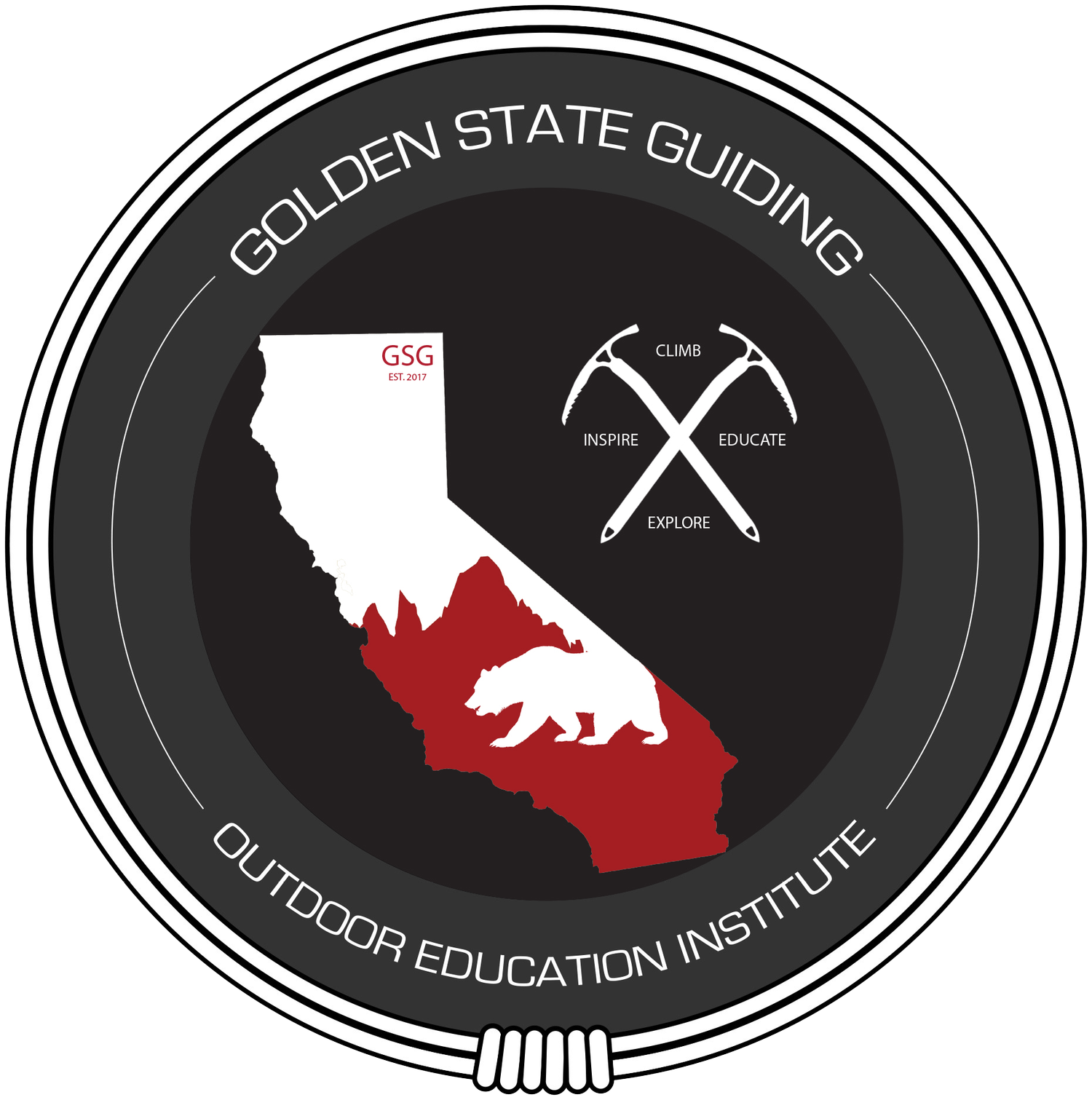SELF RESCUE & RISK MANAGEMENT CLINICS
JOSHUA TREE NATIONAL PARK
Ever find yourself in a precarious situation 100+ feet off the deck and wondering what to do? Looking to acquire the skill set and knowledge to handle unforeseen circumstances that can arise on the rock when in a multi pitch and/ or alpine environment? Then our Self Rescue and Risk Management Clinics this Fall are exactly what you are looking for!
Our Self Rescue and Risk Management Clinics are intended for intermediate to experienced outdoor climbers to build a working understanding of risk management in a high angle environment. Our SRRM clinics will teach you how to approach a rescue and execute the proper rescue systems by layering in a step by step processes through discussion with your team and hands on instruction and practice under the watchful eye of our professionally trained guides.
Our Self Rescue and Risk Management Clinics are 2 day interactive clinics that encourages climbers to share from their own climbing and life experience. Students are encouraged to bring one or two scenarios that have happened, or might happen, while out climbing that requires, or required any sort of rescue being facilitated. Throughout the course, these scenarios, along with scenarios from our guide team, will be used to create a framework to recognize risk in the present or future, and assist in the development of technical skills to respond to a rescue scenario should any arise.
We offer our Self Rescue and Risk Management Clinics as a pre scheduled 2 day course in Joshua Tree National Park. The 2 day clinic allows for ample time in the field, allowing us to cover multiple self rescue topics, to really dial in and fine tune your rescue systems and skills. If the below pre scheduled dates don’t work, we’re happy to set up a private program for anyone interested. Scroll below to learn more about our pre scheduled and private clinic options.
These clinics are being facilitated in response to accidents in our local climbing areas. Educate yourself, get the training, and be prepared.
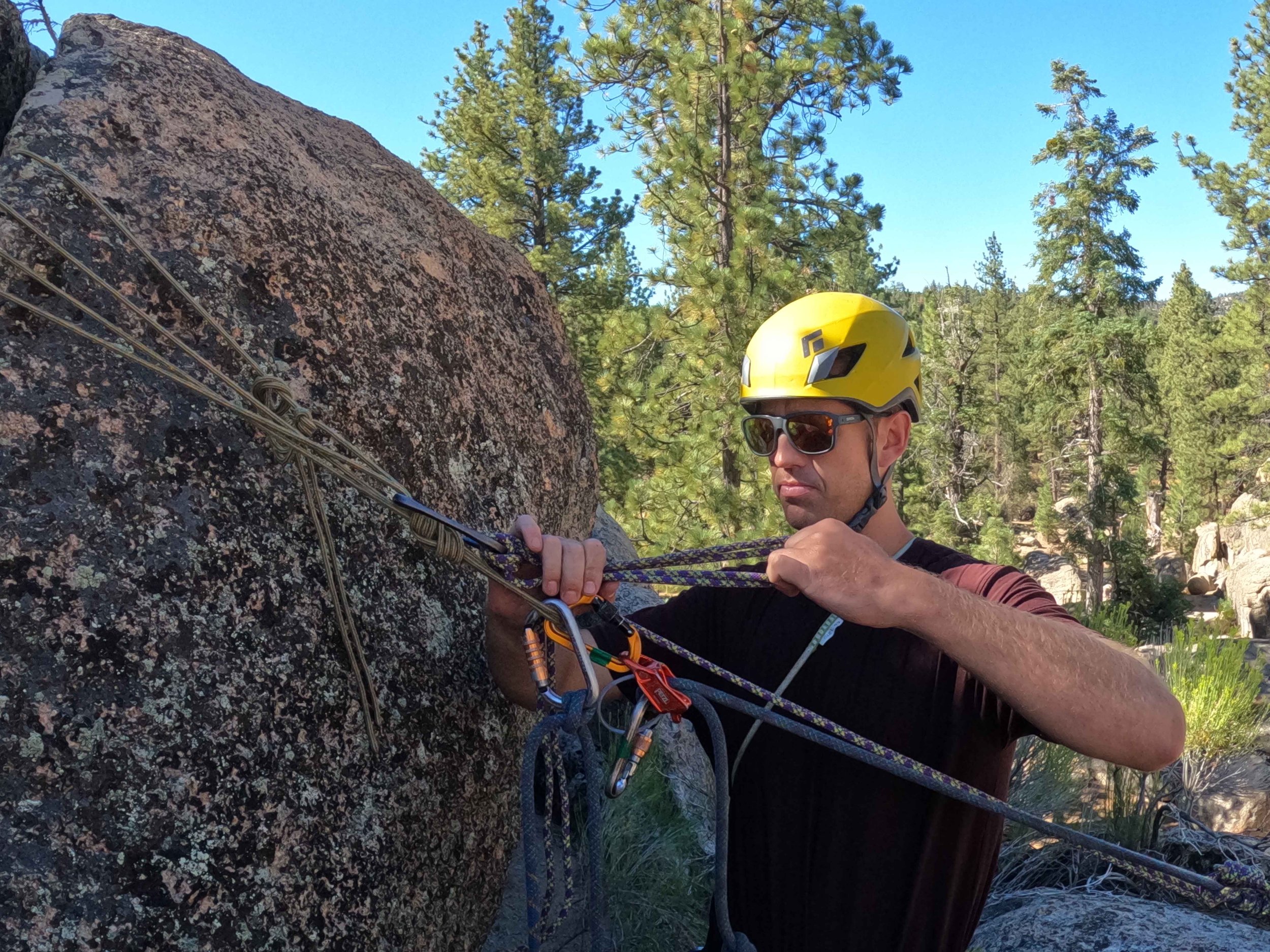
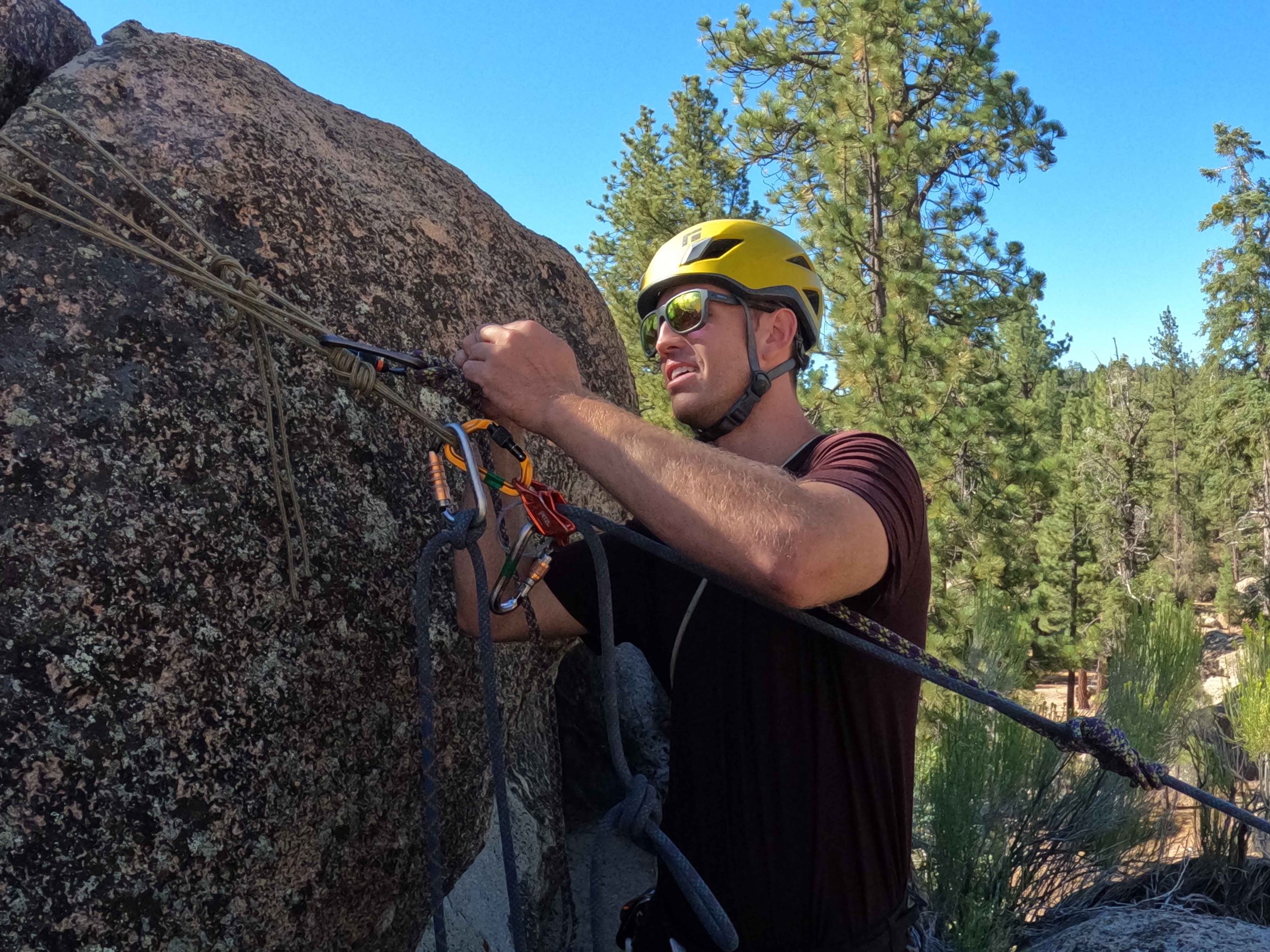
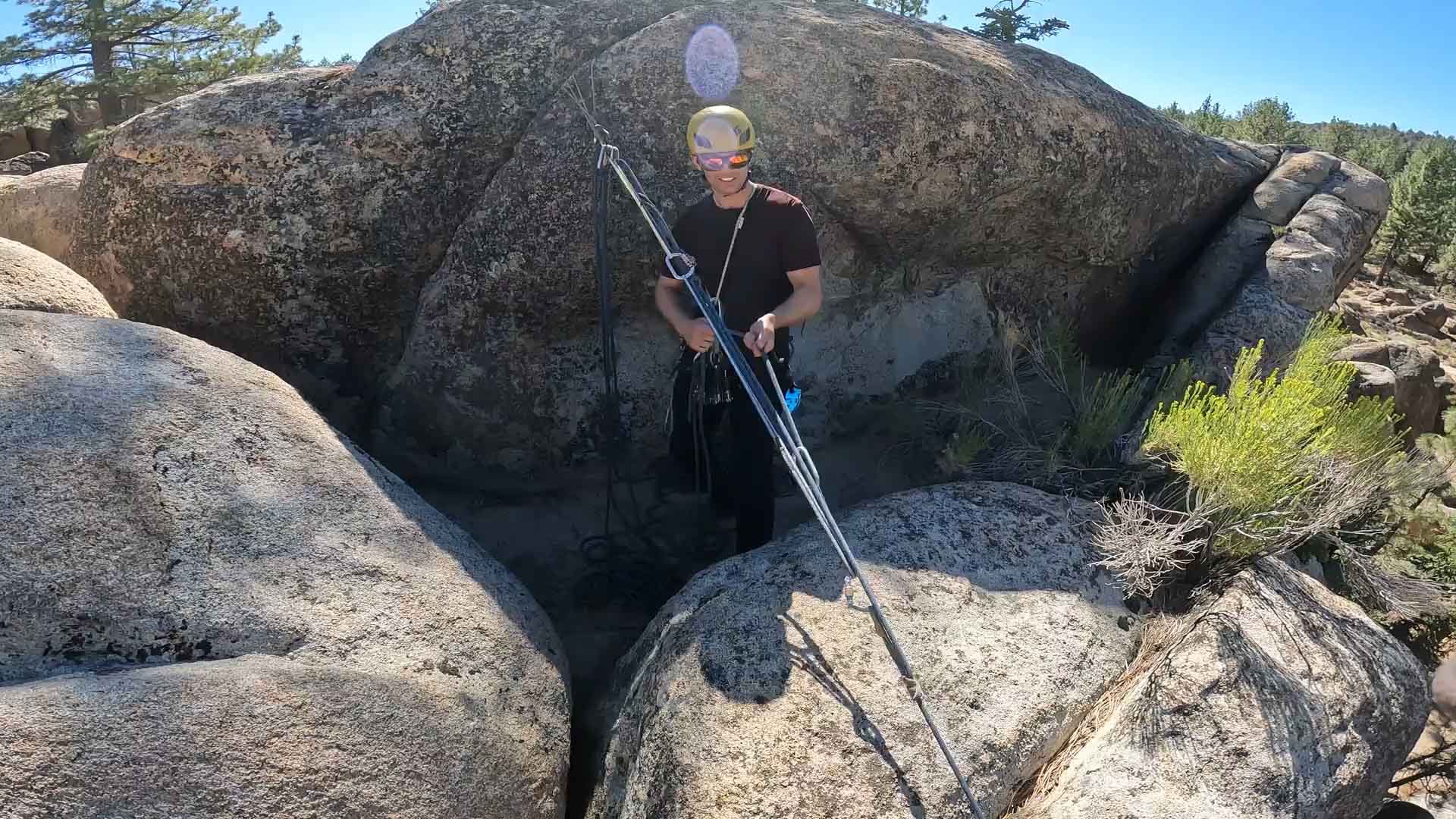
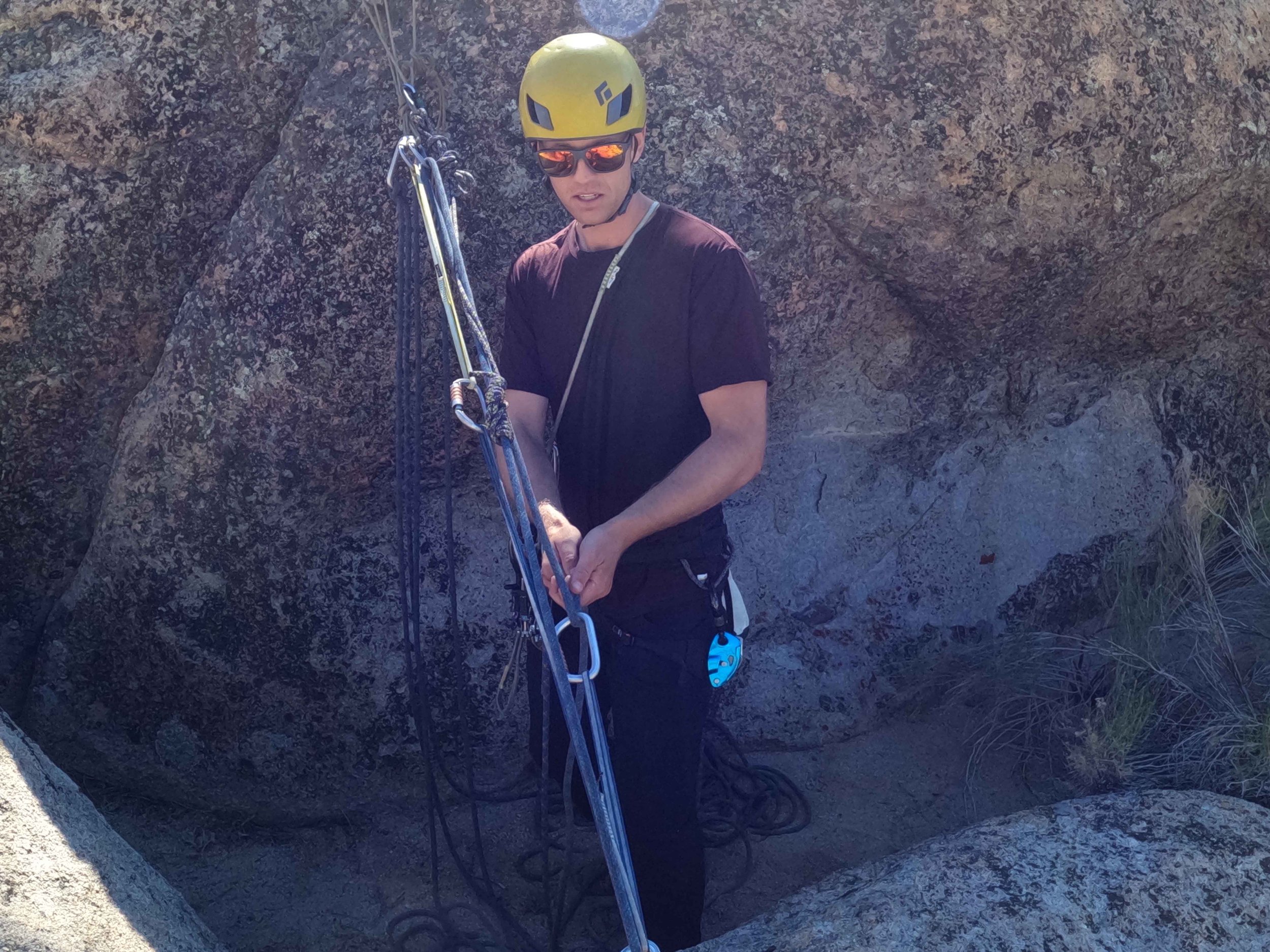
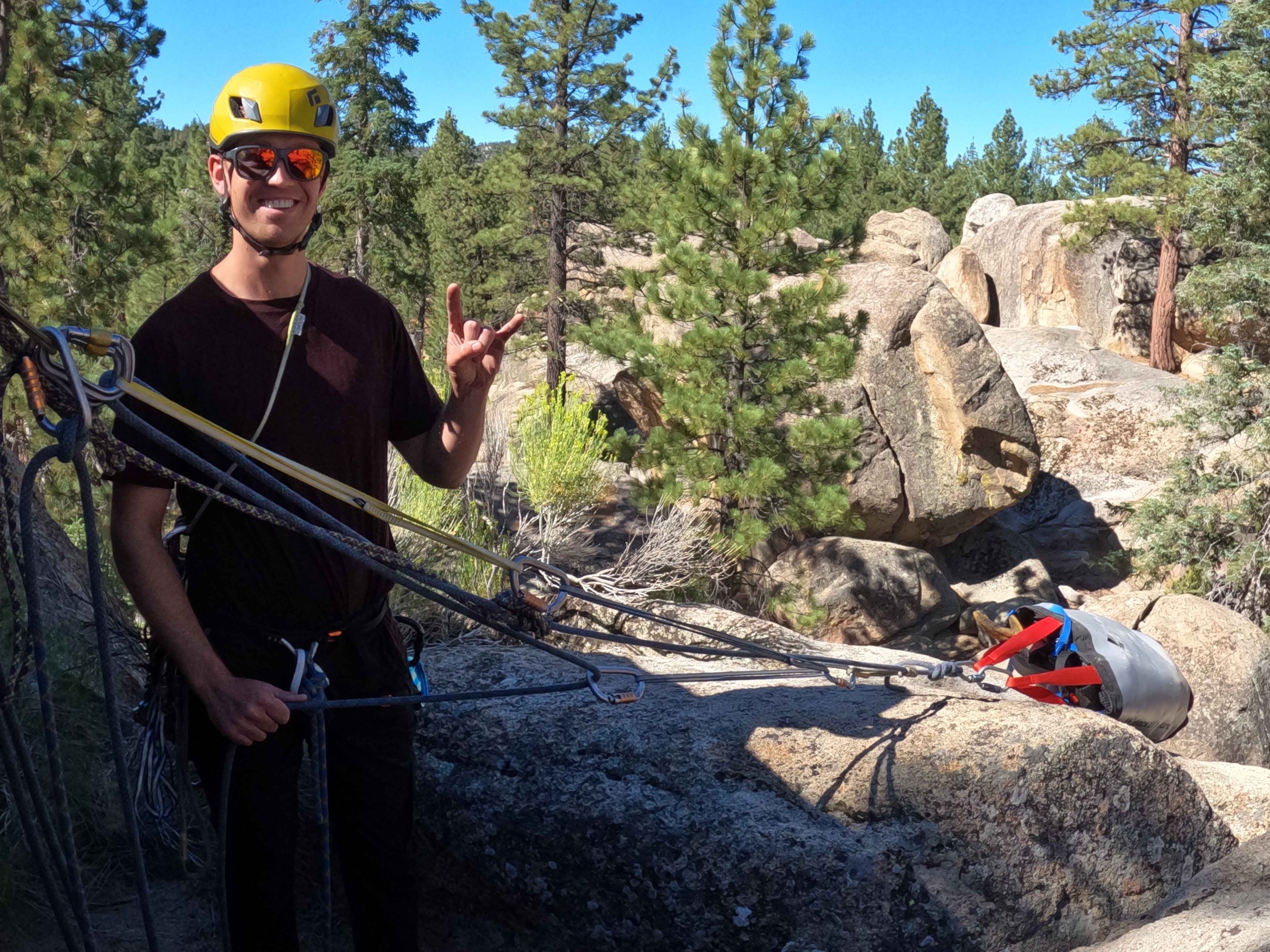
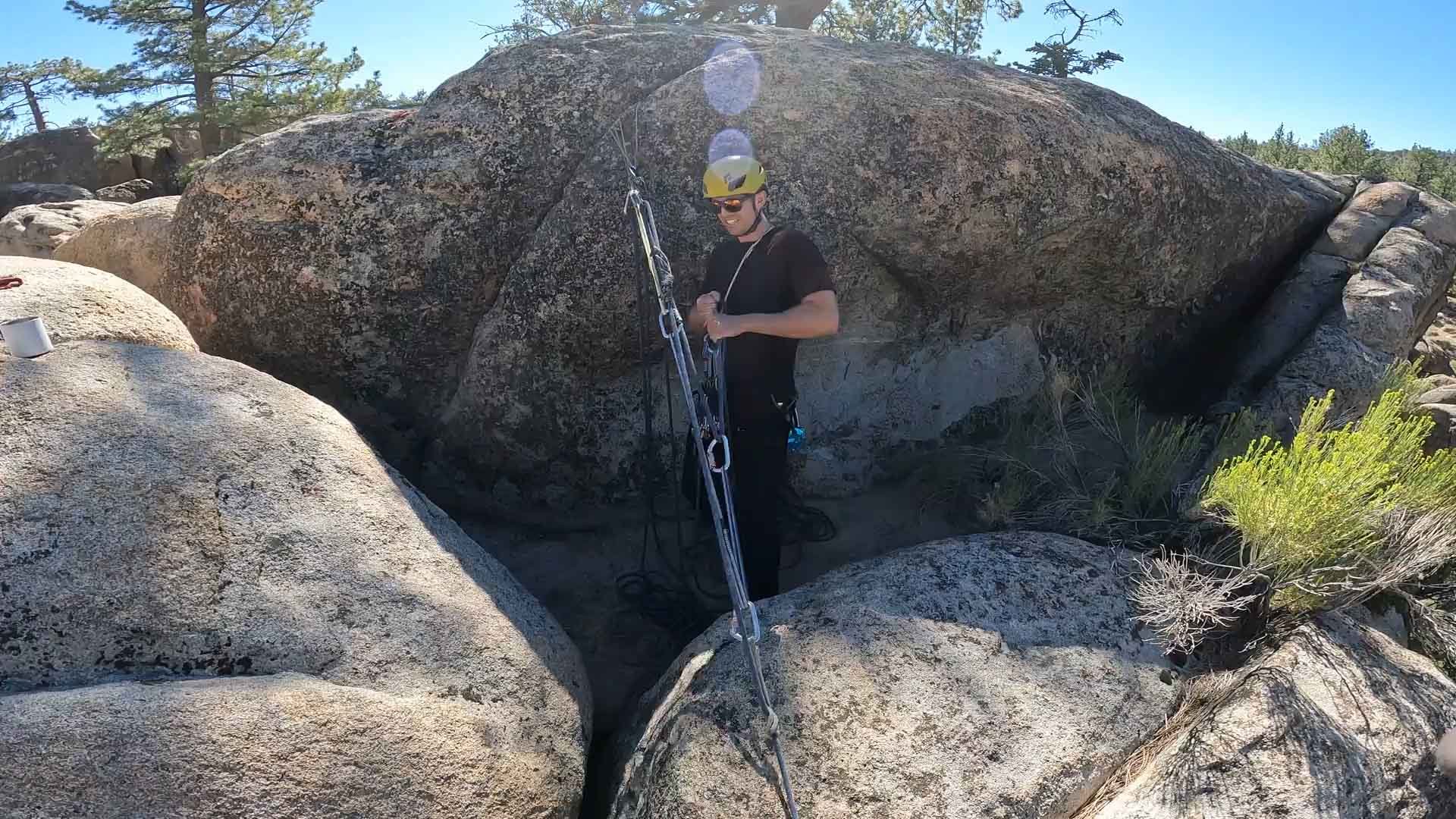
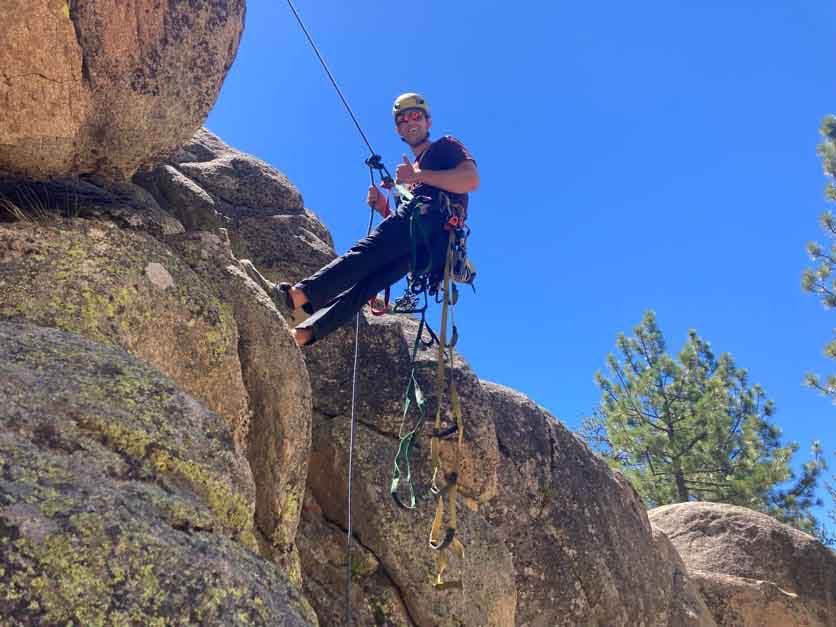
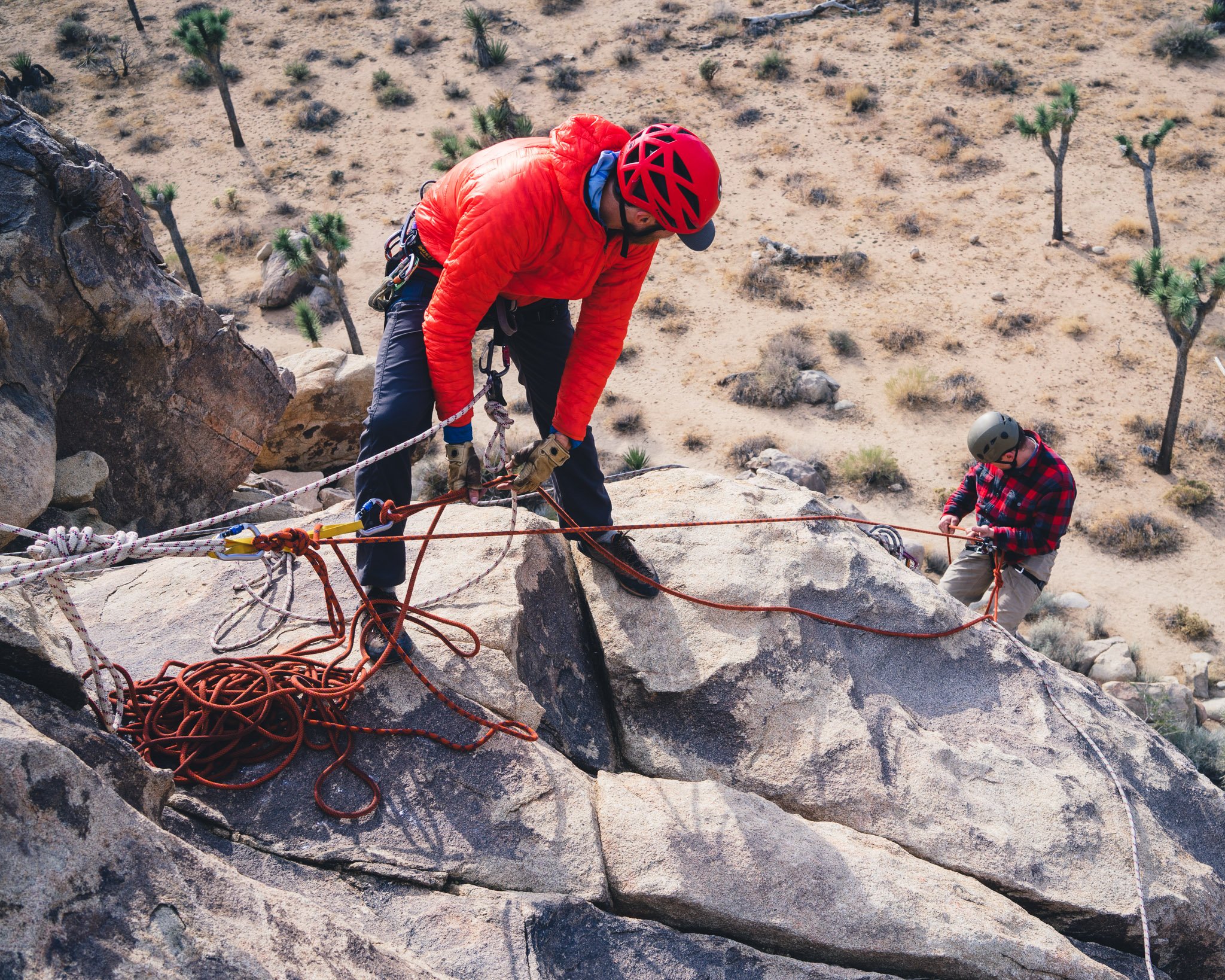
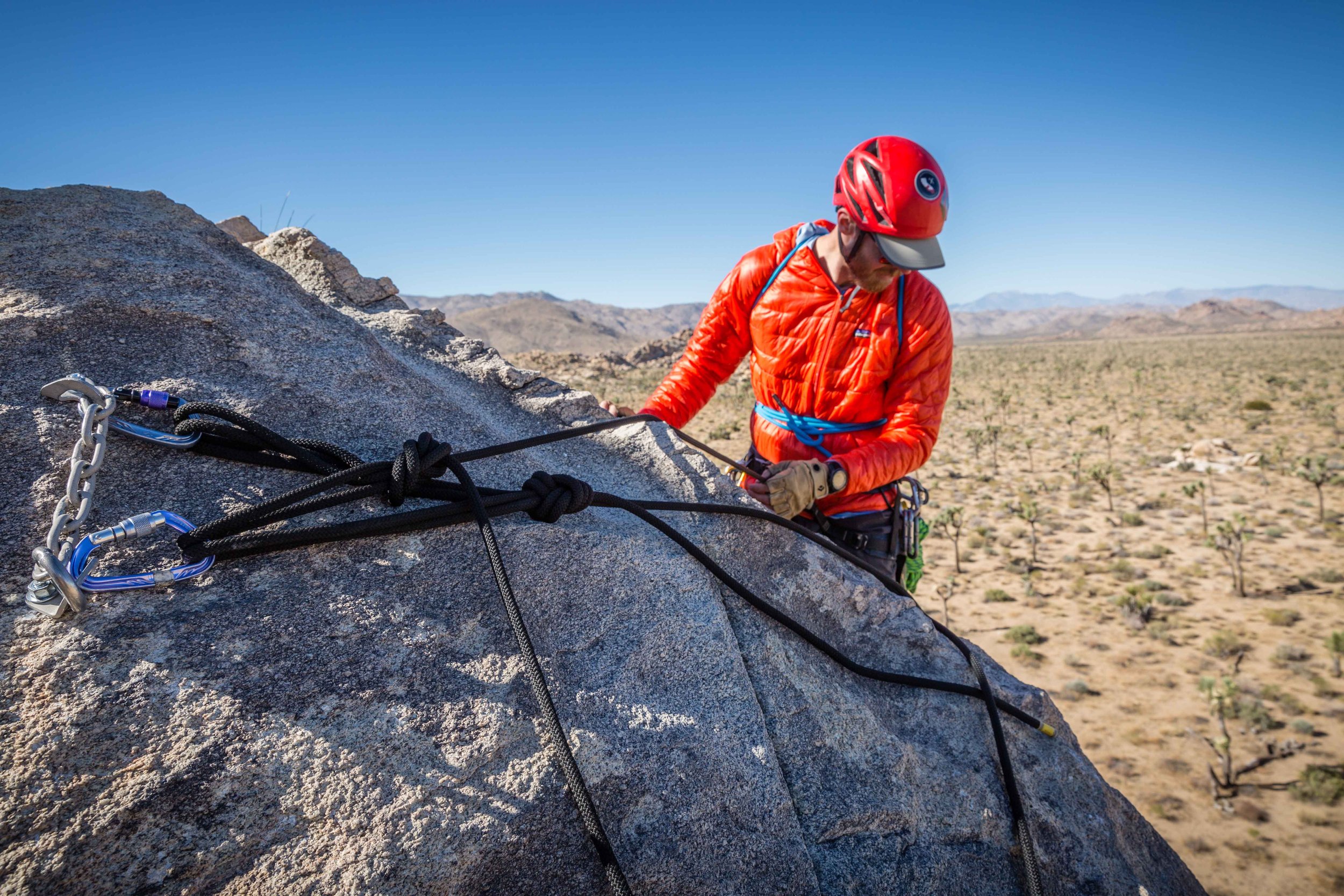
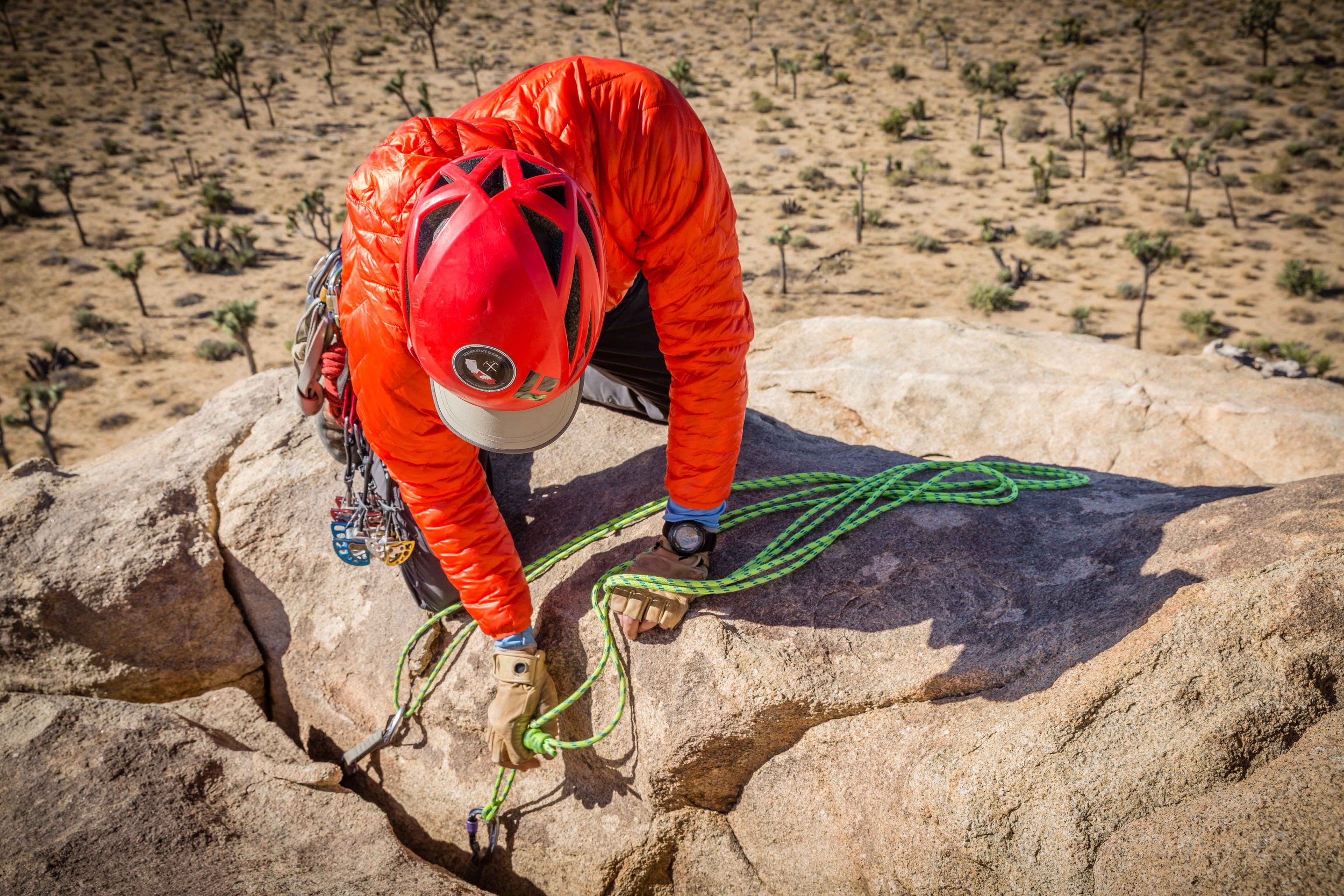
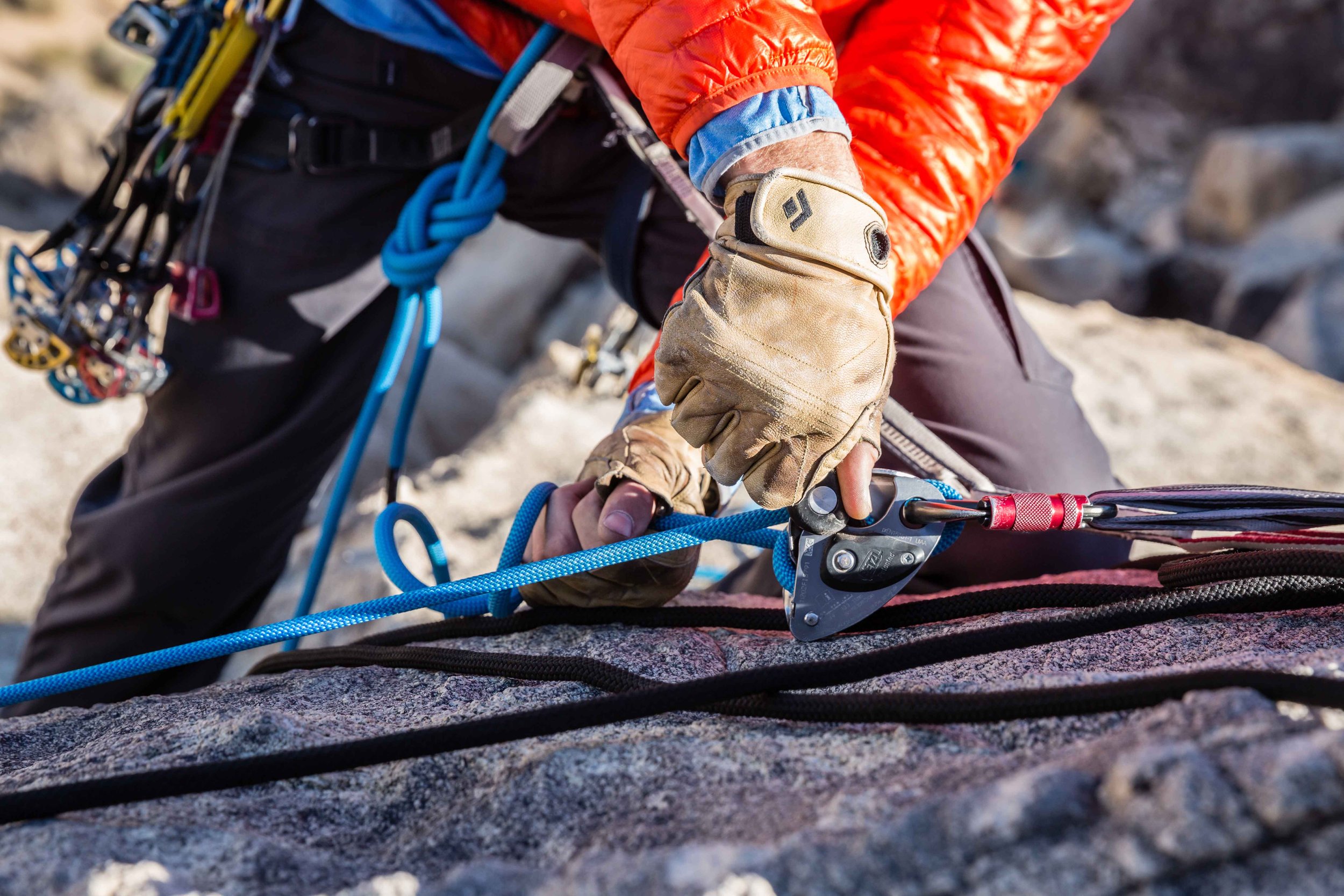

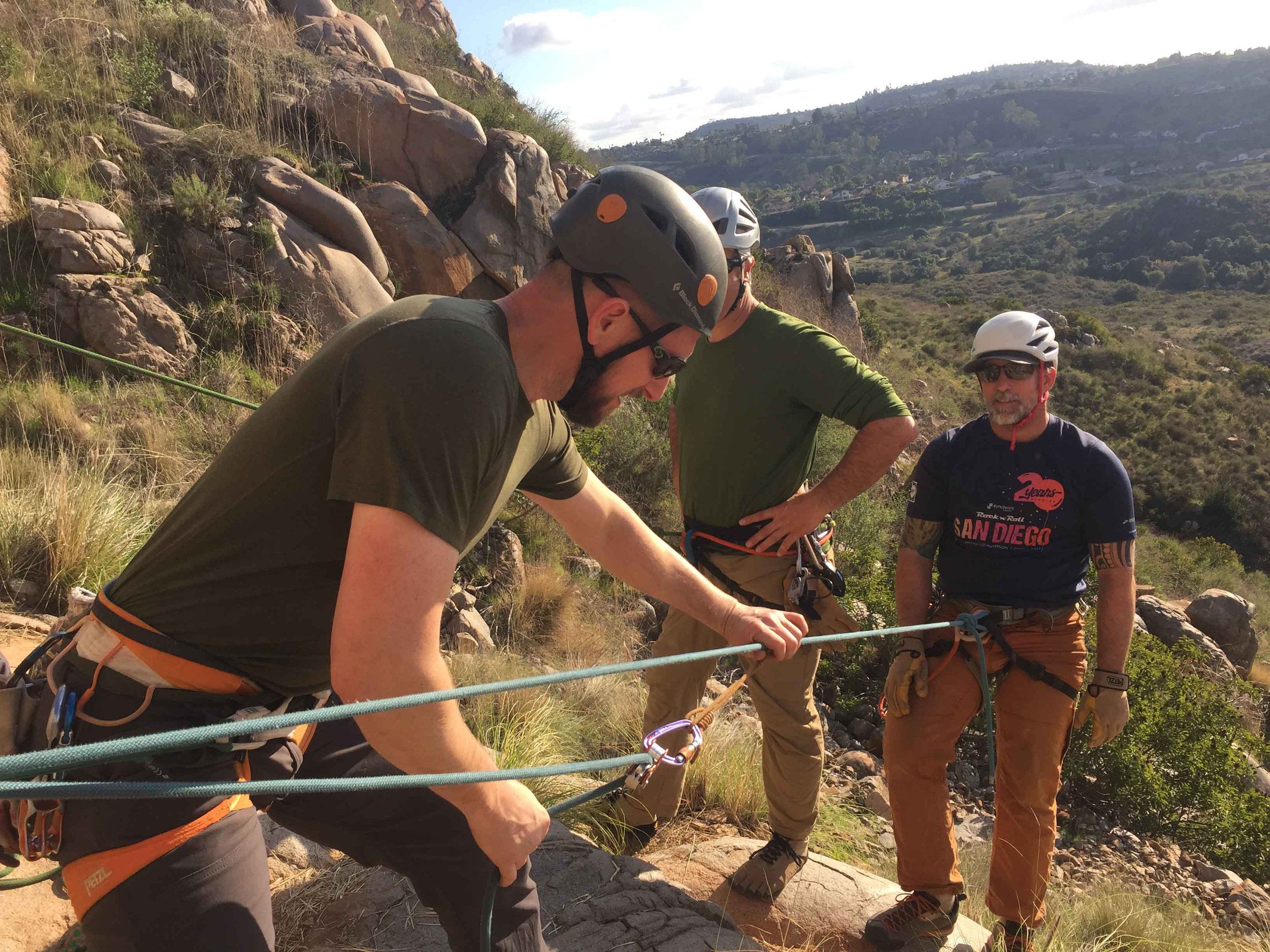


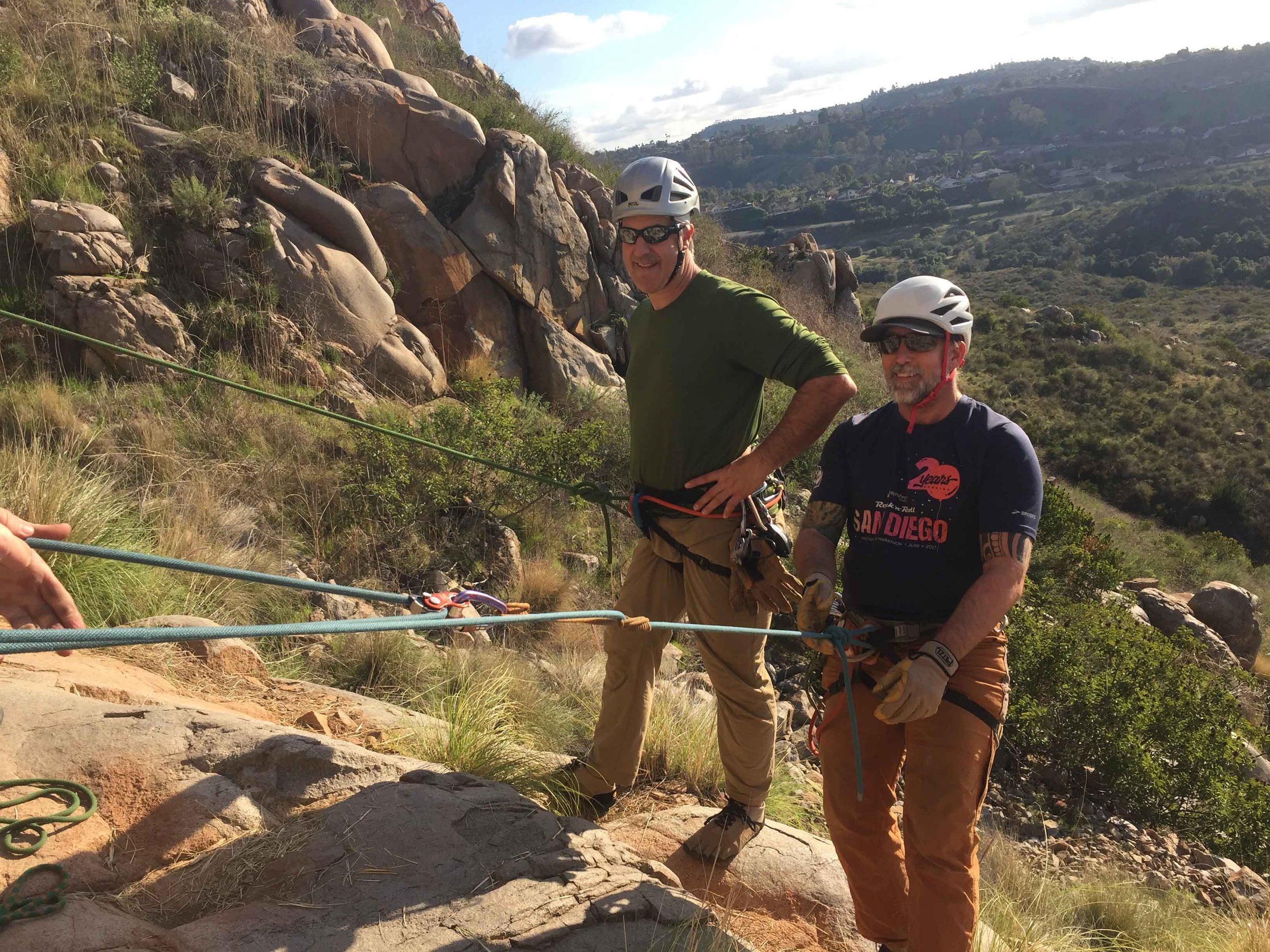
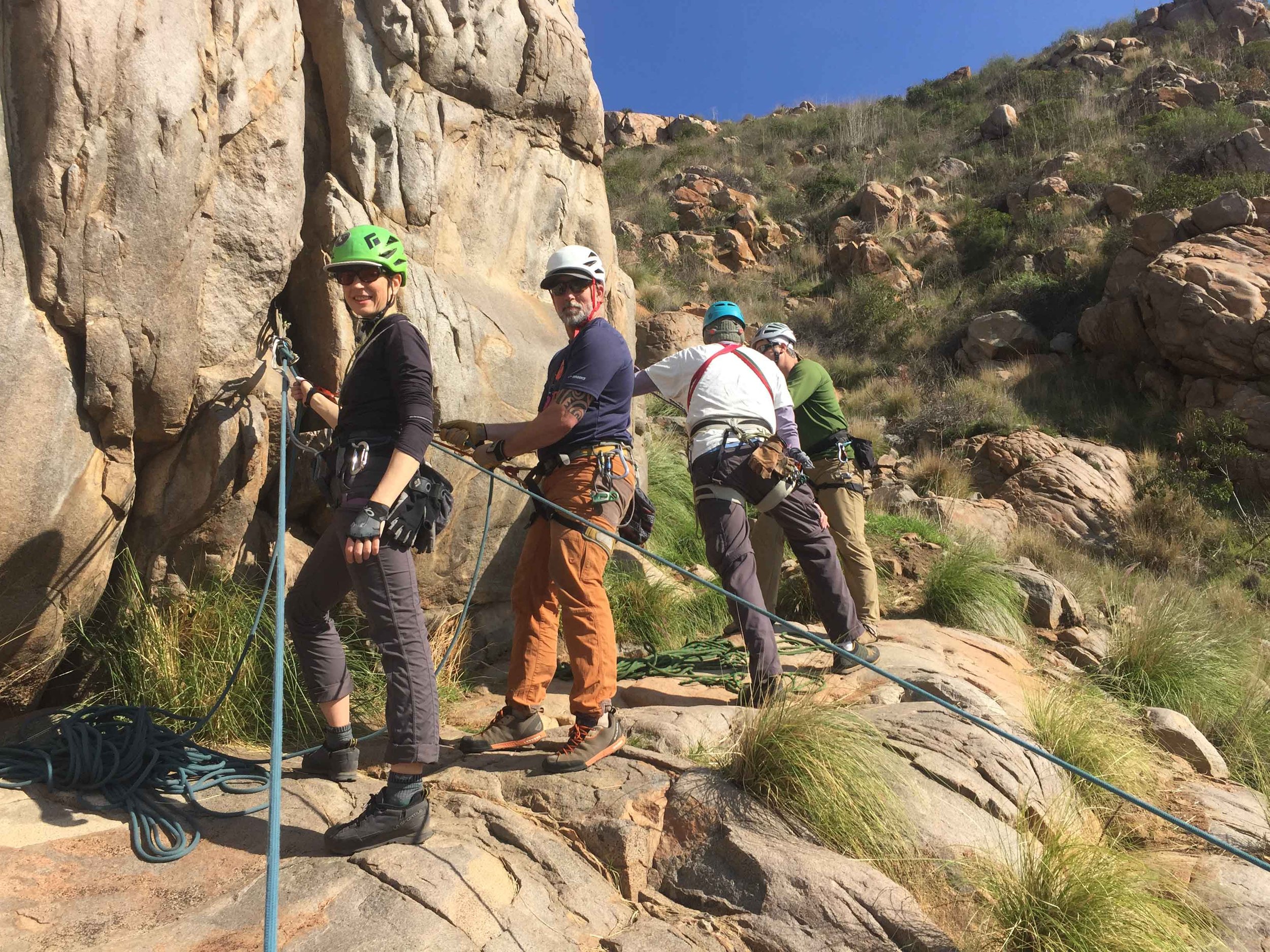
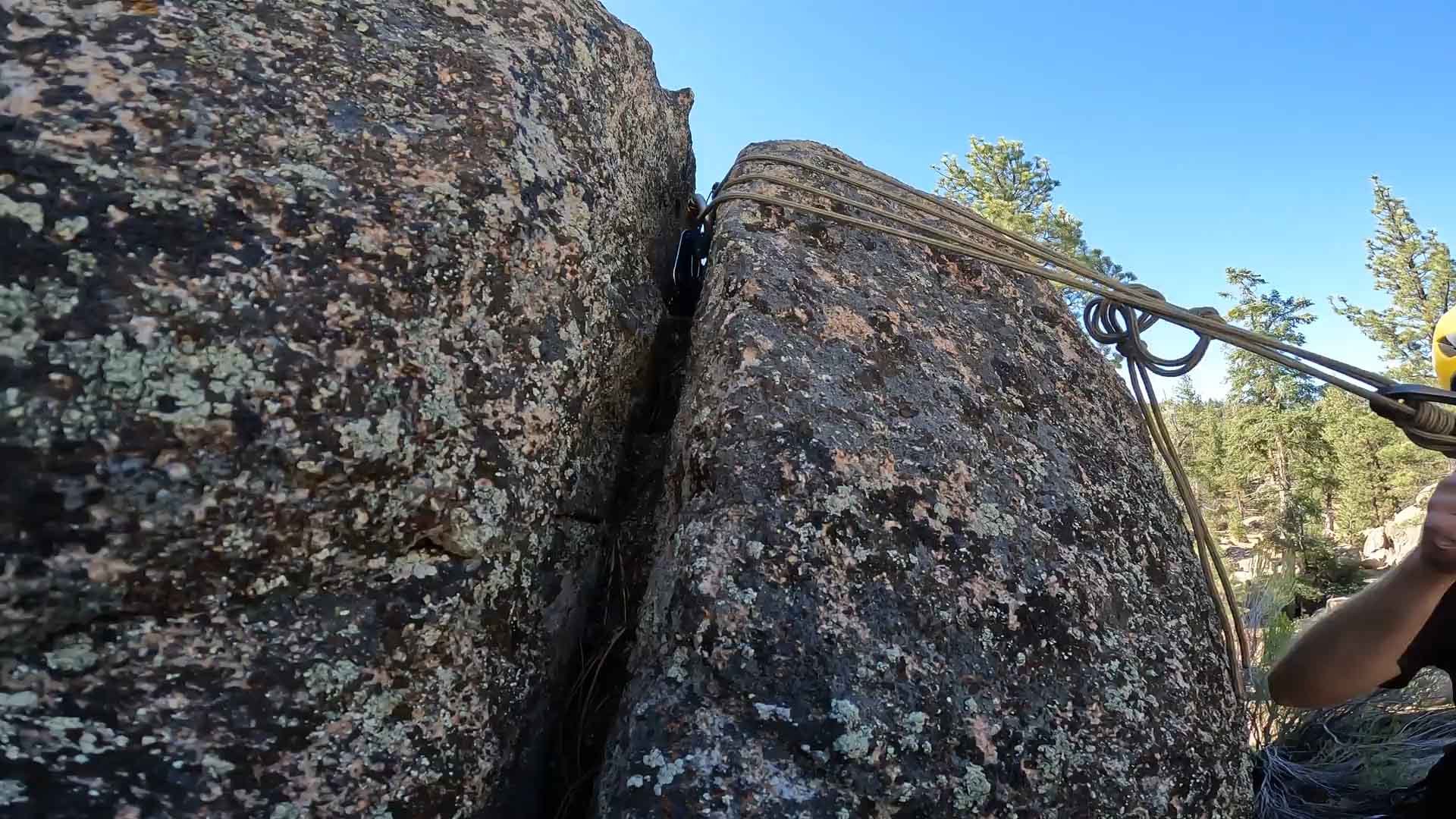
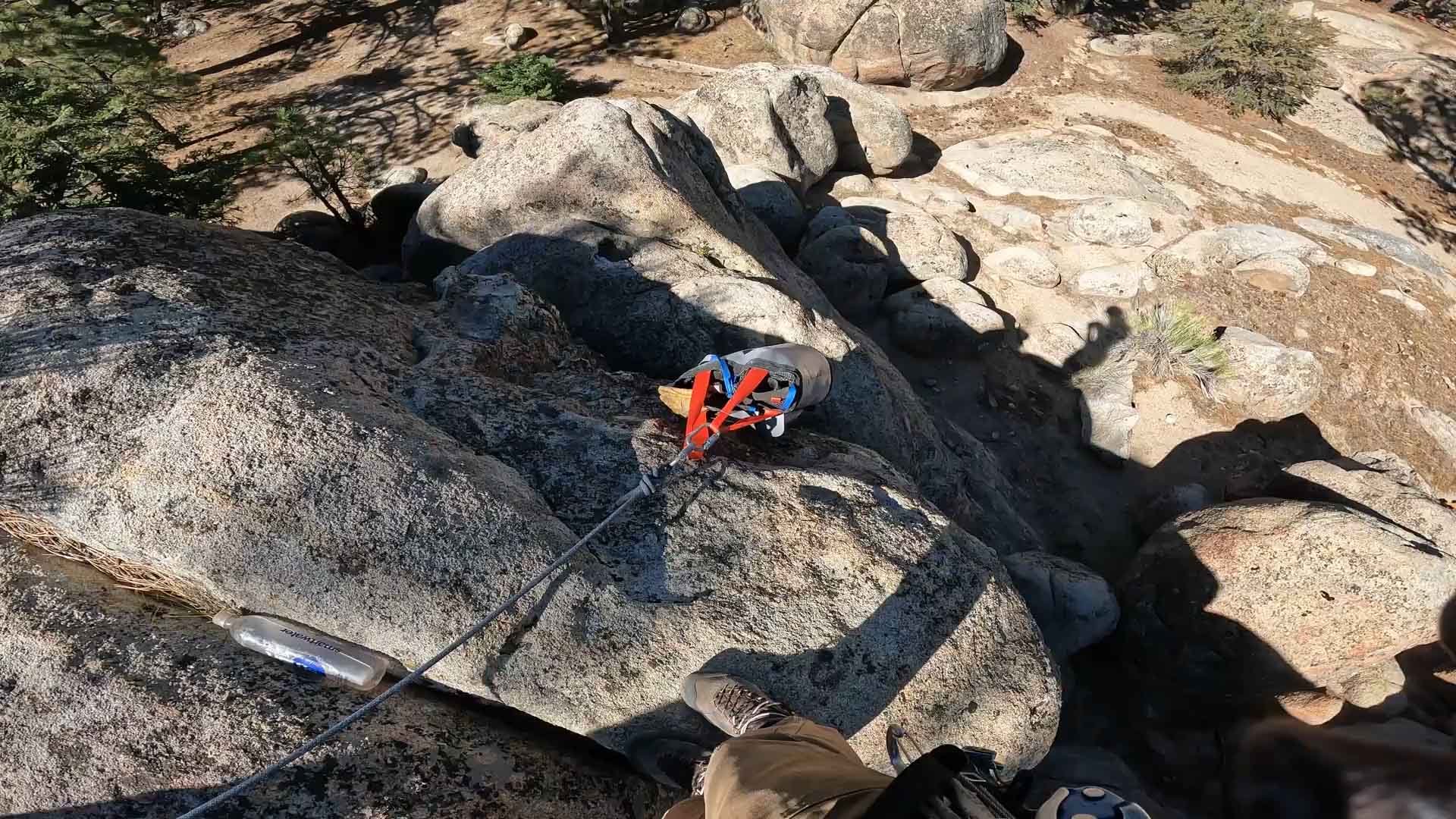
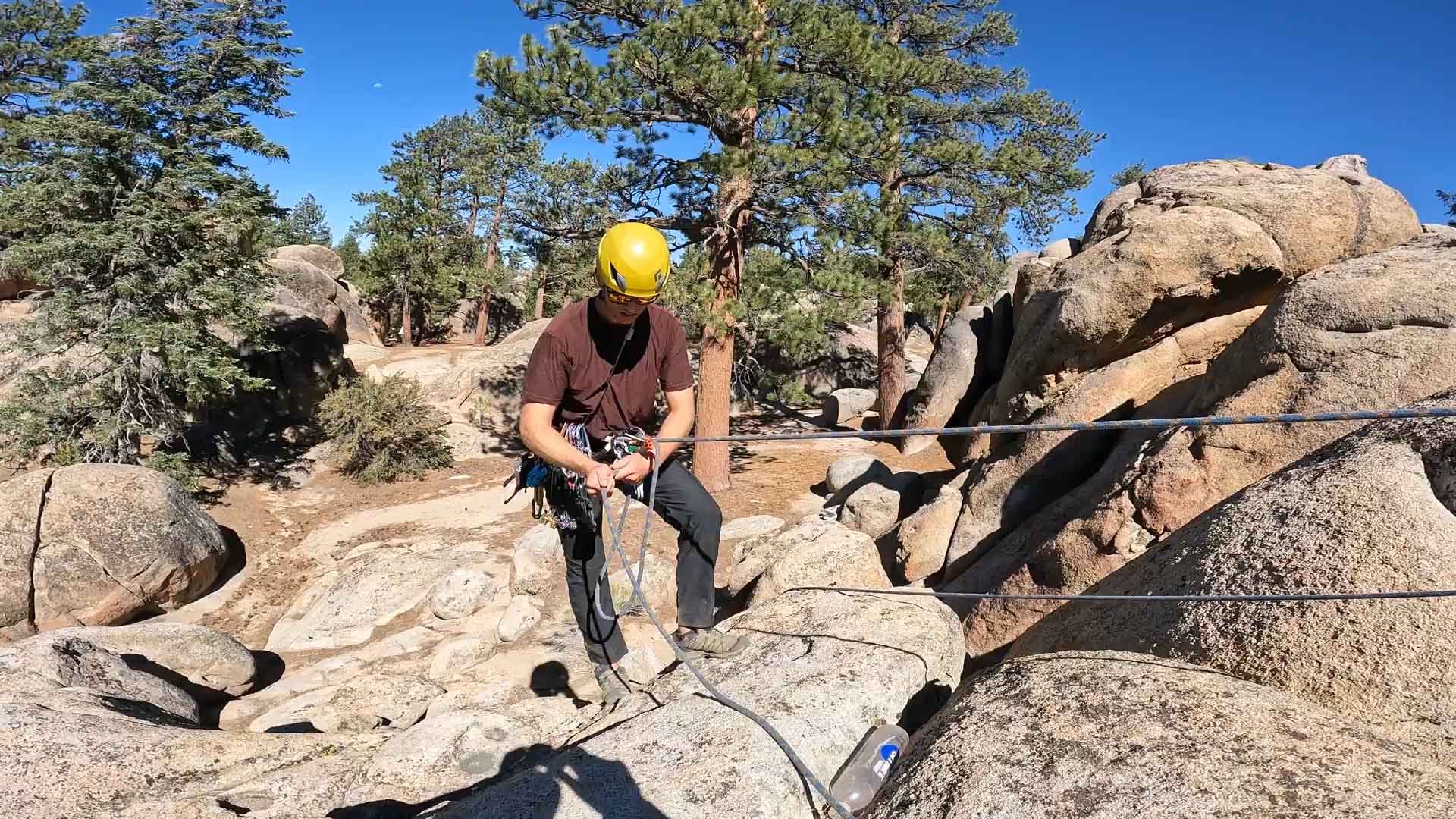

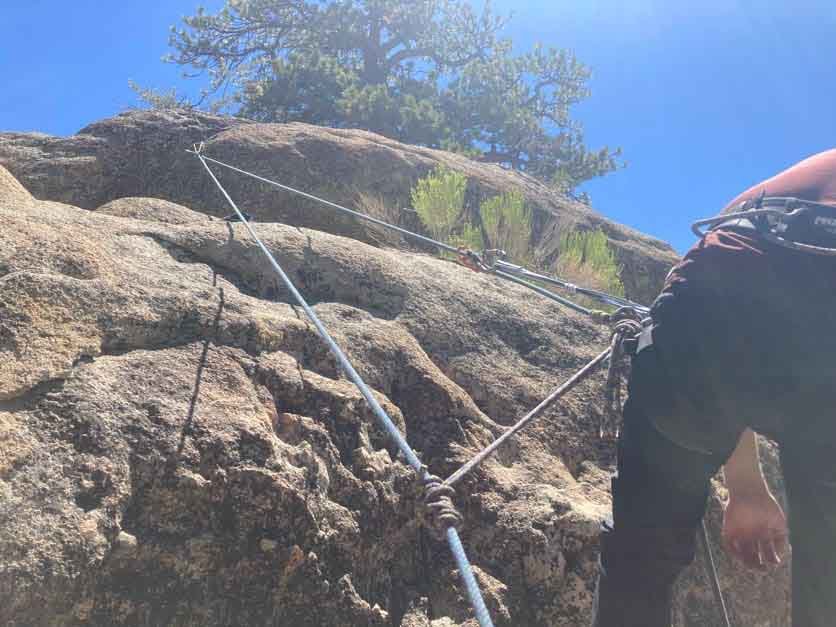
SELF RESCUE & RISK MANAGEMENT CLINIC GENERAL INFO
COST: $400
LOCATION: Joshua Tree National park
CLINIC LENGTH: 2 DAYS (16 HOURS)
-
DAY 1
Introductions and course expectations
Discussion of objective hazards, terrain, and risk management
Review and discussion of anchors and hands on anchor building
Review of equipment used for self rescue and the appropriate applications
Discussion and demonstration around rappelling and lowering systems
Discussion and demonstration around ascending a rope
Free climb!
Debrief
DAY 2
Group check-in’s and review from the previous day
Process of a rescue; reviewing risk in the past, and managing risk in the future
Advanced anchoring systems review and practice
Scenario 1: Demonstration and hands on practice
Advanced rappelling techniques review and practice
Scenario 2: Demonstration and hands on practice
Additional practice from both previous scenarios
Free climb!
Final review and debrief of the clinic
-
Bottom belay and top-rope climbing experience
Lead belaying experience
Lead climbing experience (preferred but not mandatory)
Traditional gear placement (preferred but not mandatory)
Multi pitch following experience (preferred but not mandatory)
-
Cost: $400 for the pre-scheduled two day clinic
October 28th - 29th (Joshua Tree)
December 2nd - 3rd (Joshua Tree)
-
SAN DIEGO
One Person $660
Two People $450 (Per Person)
Three People $370 (Per Person)
Four People $330 (Per Person)
JOSHUA TREE
One Person $730
Two People $470 (Per Person)
Three People $390 (Per Person)
Four People $350 (Per Person)
EASTERN SIERRA
One Person $950
Two People $600 (Per Person)
Three People $500 (Per Person)
Four People $400 (Per Person)
-
Harness, helmet, climbing shoes (if needed).
All self rescue equipment including ropes, quick draws, active and passive traditional climbing gear, slings, cords, and locking carabiners.
Professionally trained AMGA Guide(s)
